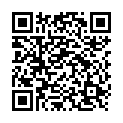|
|
|
| Module code: E612 |
|
5P (5 hours per week) |
|
5 |
| Semester: 6 |
| Mandatory course: yes |
Language of instruction:
German |
Assessment:
Examination
[updated 12.03.2010]
|
E612 Electrical Engineering, Bachelor, ASPO 01.10.2005
, semester 6, mandatory course
|
75 class hours (= 56.25 clock hours) over a 15-week period.
The total student study time is 150 hours (equivalent to 5 ECTS credits).
There are therefore 93.75 hours available for class preparation and follow-up work and exam preparation.
|
Recommended prerequisites (modules):
E411 Communications technology I
E516 Communications technology 2
[updated 12.03.2010]
|
Recommended as prerequisite for:
|
Module coordinator:
Prof. Dr. Horst Wieker |
Lecturer:
Prof. Dr. Horst Wieker
[updated 12.03.2010]
|
Learning outcomes:
After successfully completing this module, students will understand and be able to analyse the standard interface protocols in the telecommunications industry. Students will be able to handle advanced protocol analysers. They will have acquired a solid practical understanding of TNM systems and how they are configured and administered. In addition, students will be able to configure and program components and systems for IP networks.
[updated 12.03.2010]
|
Module content:
- Protocol analysis
- The DSS1 interface
- The No 7 interface
- Configuration using a TNM on an SDH backbone
- Voice over IP
- Router programming in IP networks
[updated 12.03.2010]
|
Teaching methods/Media:
Lab experiments, board work
[updated 12.03.2010]
|
Recommended or required reading:
SIGMUND G., Technik der Netze, Hüthing
BARZ H.W., Kommunikation und Computernetze, Hanser
LIENEMANN G., TCP-IP-Grundlagen, Heise
ETSCHBERGER K., Controller-Area-Network, Hanser
PERLMAN R., Bridges, Router, Switches und Internetworking-Protokolle, Addison Wesley
SIKORA A., Wireless LAN, Addison Wesley
[updated 12.03.2010]
|


